mind maps
Implicit Theories of Relationships – What kinds of beliefs do you hold about romantic love?
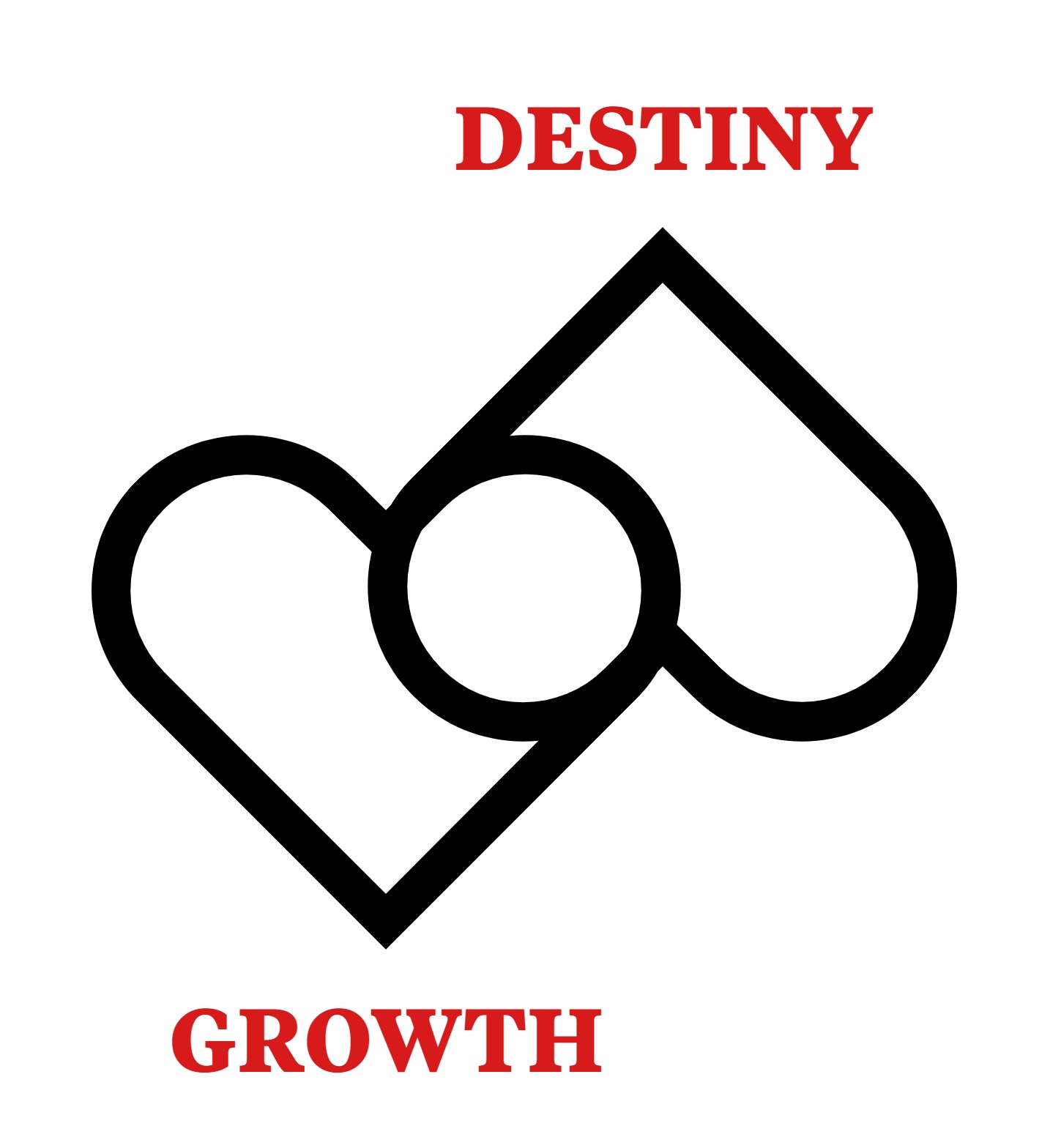
1 – What are Implicit Theories?
“You’re either born creative or you’re not.“
“We all learn from experience.”
“He’ll never change…”
Implicit theories are those kinds of a priori beliefs we hold intuitively, as non-researchers.
Your personal lay theories shape the way you interpret and judge the world that surrounds you.
That being said: You’re mostly unaware of them.
These inner beliefs are quite stable. – And yet, they vary substantially between us.
Research on Implicit theories usually distinguishes between 2 core beliefs about the nature of human attributes:
– the belief that traits are fixed
and
– the belief that traits are flexible : they can change and be developed.
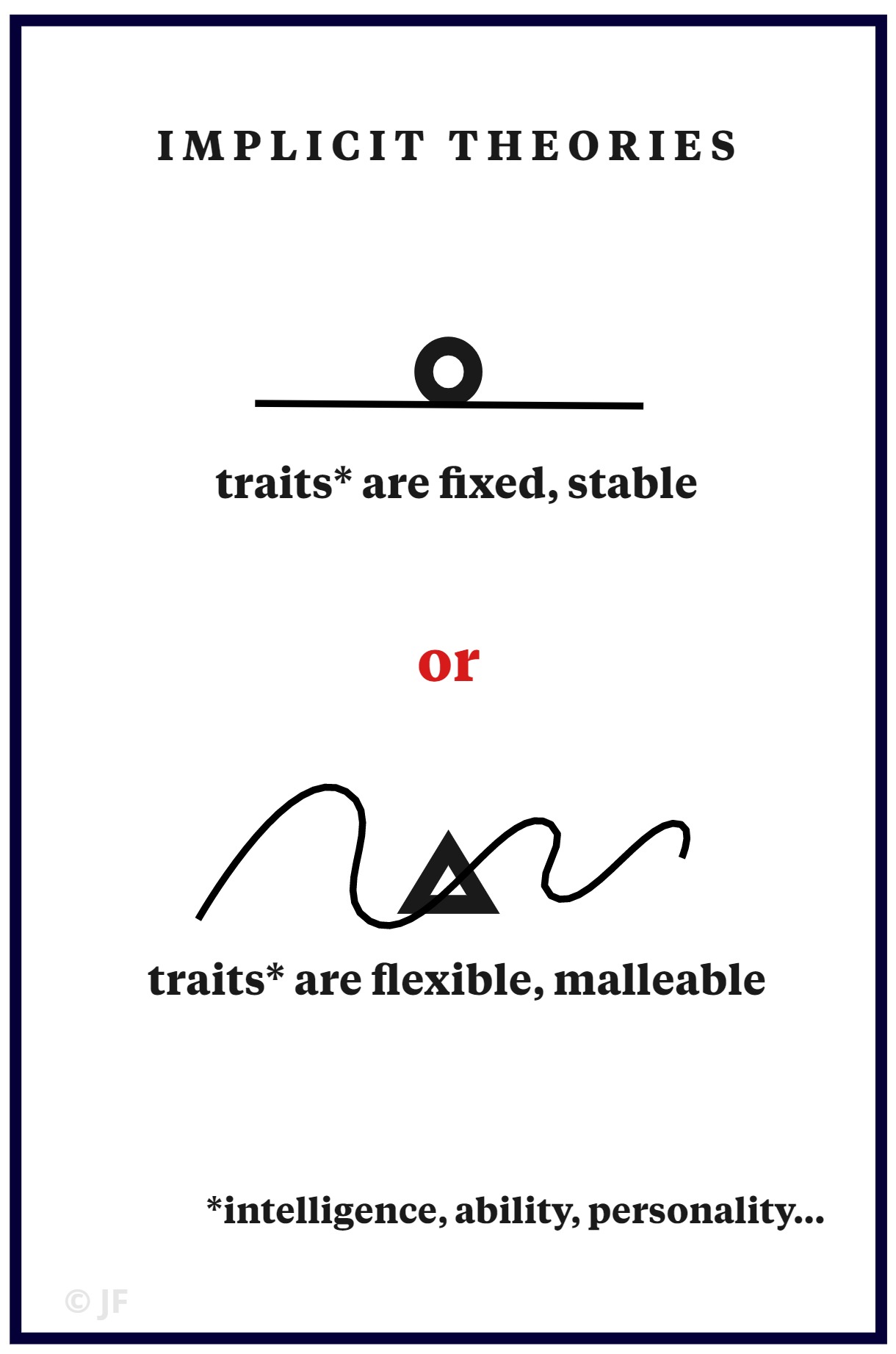
2 – Implicit Theories of Relationships
What about romantic love? Is it fixed and destined? Or can it grow and evolve over time? Which belief do you rather adhere to?
a. DESTINY
Believers in romantic destiny tend to give crucial weight to the early stage of a relation.
Early indicators of compatibility (or incompatibility) determine whether a relationship is perceived as successful or not.
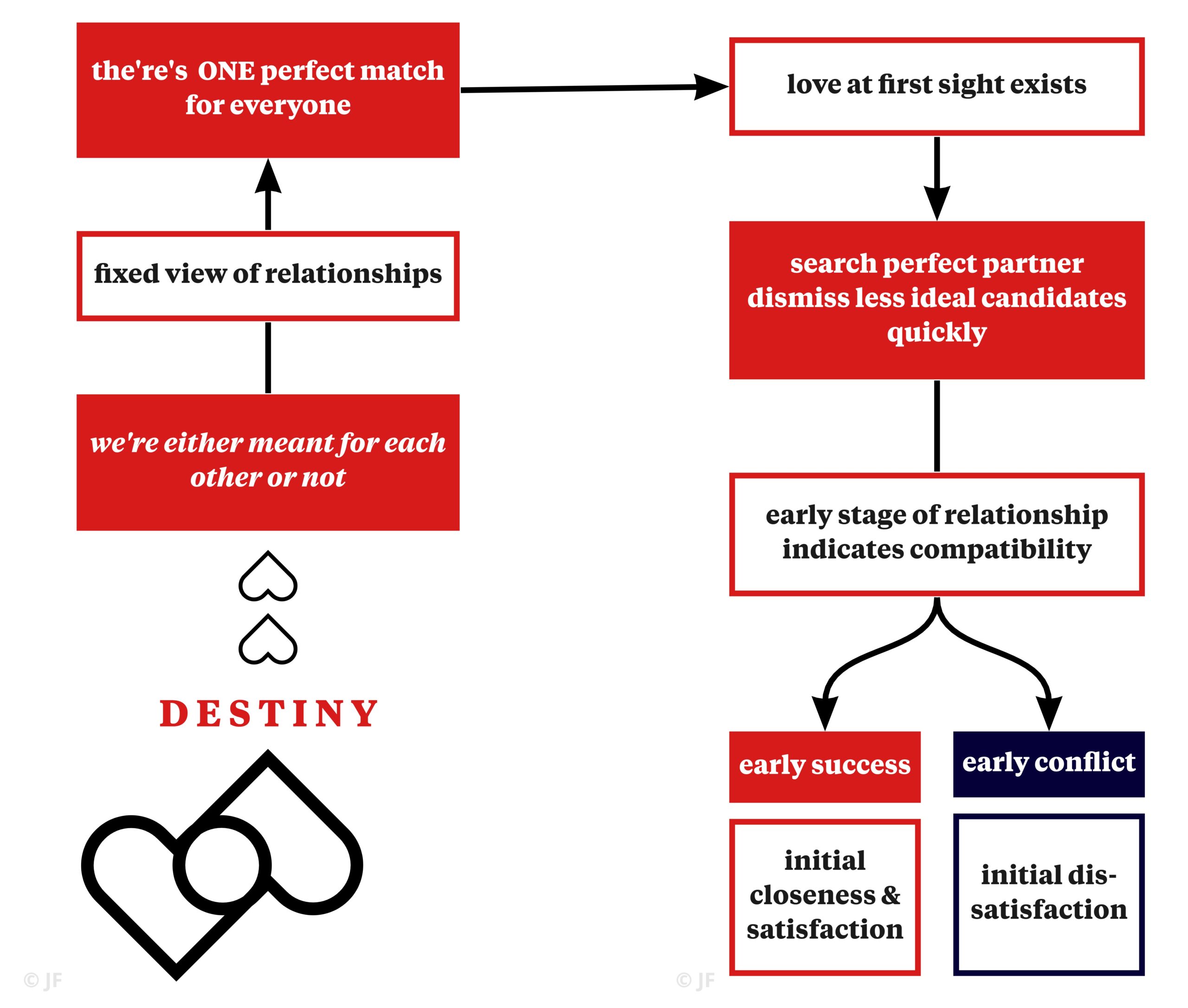
Initial closeness and satisfaction are associated with relationship survival and longevity.
Early conflict and initial dissatisfaction, on the other hand, are associated with distancing oneself from the Other and the relationship instead of working on it.
A destiny believer would rather terminate the relationship and move on quickly to find his/her perfect match elsewhere.
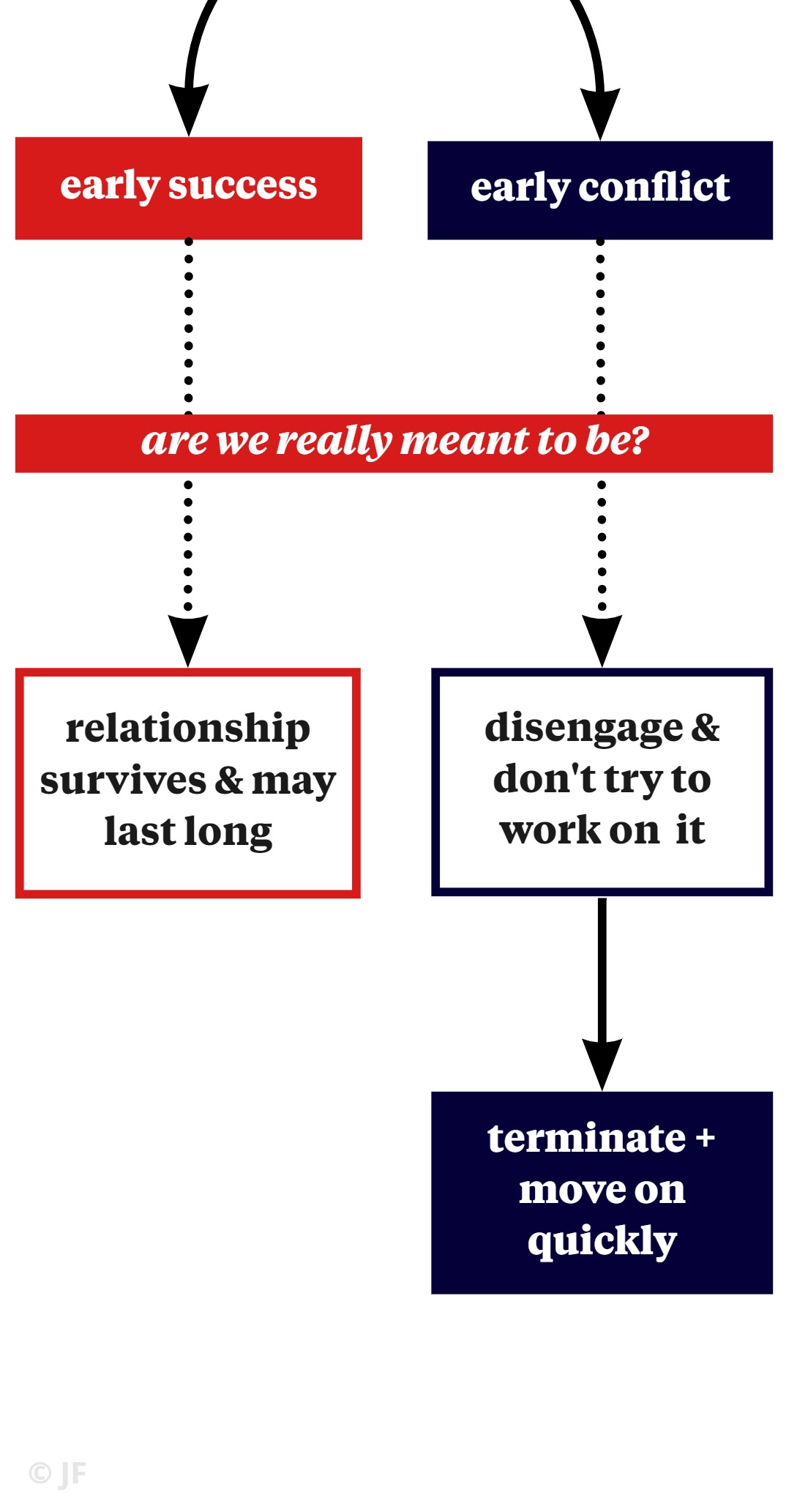
b. GROWTH
Those who believe in growth tend to give less weight to the initial phase of getting acquainted and dating someone.
Initial impressions of compatibility are not seen as decisive for the success or failure of a relationship.
Believers in growth will rather adopt a long term approach to dating that is associated with fewer one-night-stands (ONS) and more commitment to one specific person.
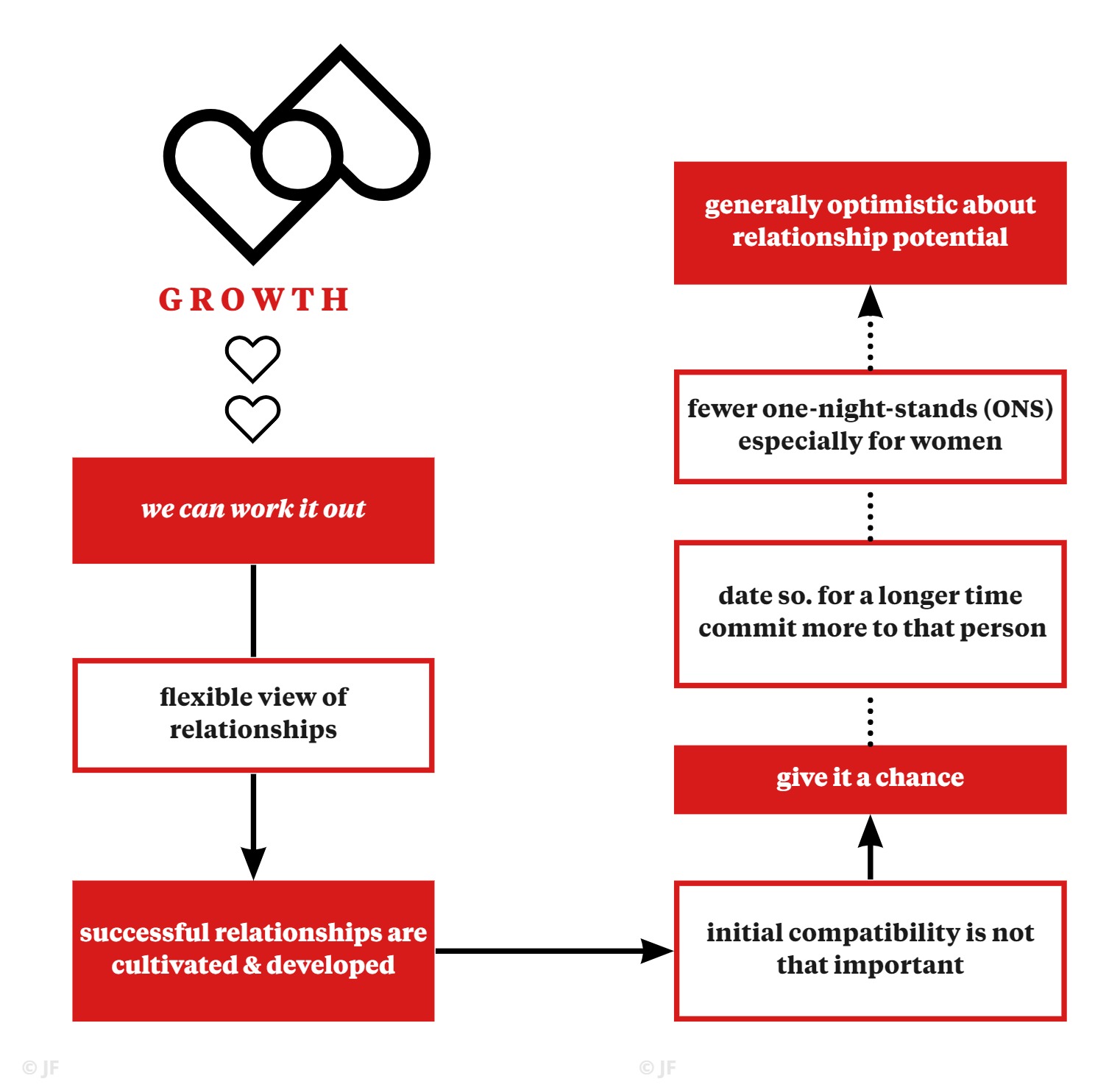
Early conflict is not viewed as premature failure, but as a crucial step to grow and evolve as a couple and make the relationship successful.
Growth believers make active efforts to maintain the relationship despite difficulty.
They deny less personal responsibility, which shows their willingness to work on the relationship.
Even if a relationship ends, they don’t think it was a misfit from the beginning.
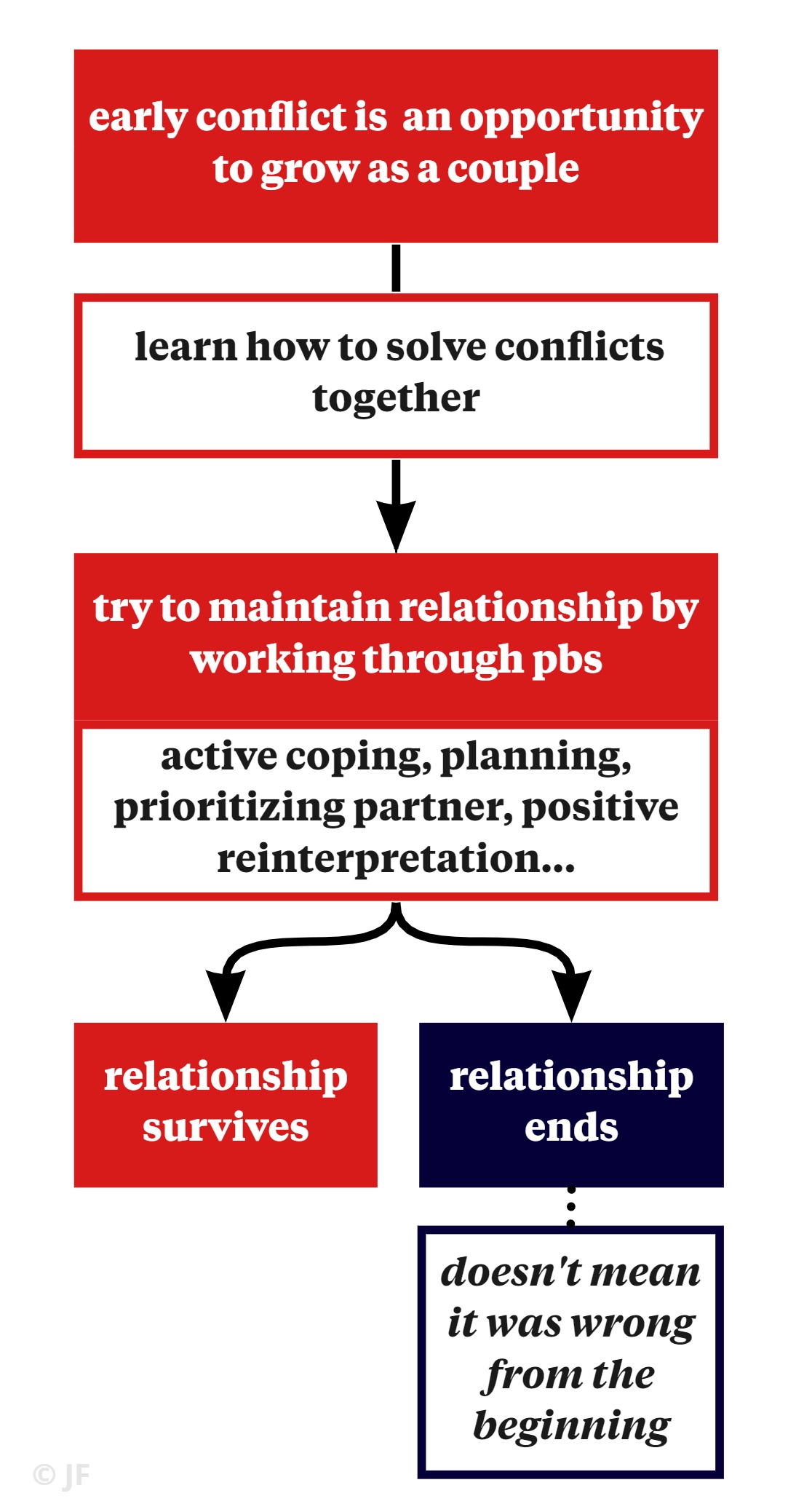
3 – Destiny and/or Growth ?
Destiny and growth are not mutually exclusive. Growth is not simply the opposite of destiny. Indeed, both beliefs are independent constructs.
And, while you may be more inclined to one or the other, you can also believe in both at different times or in different contexts.
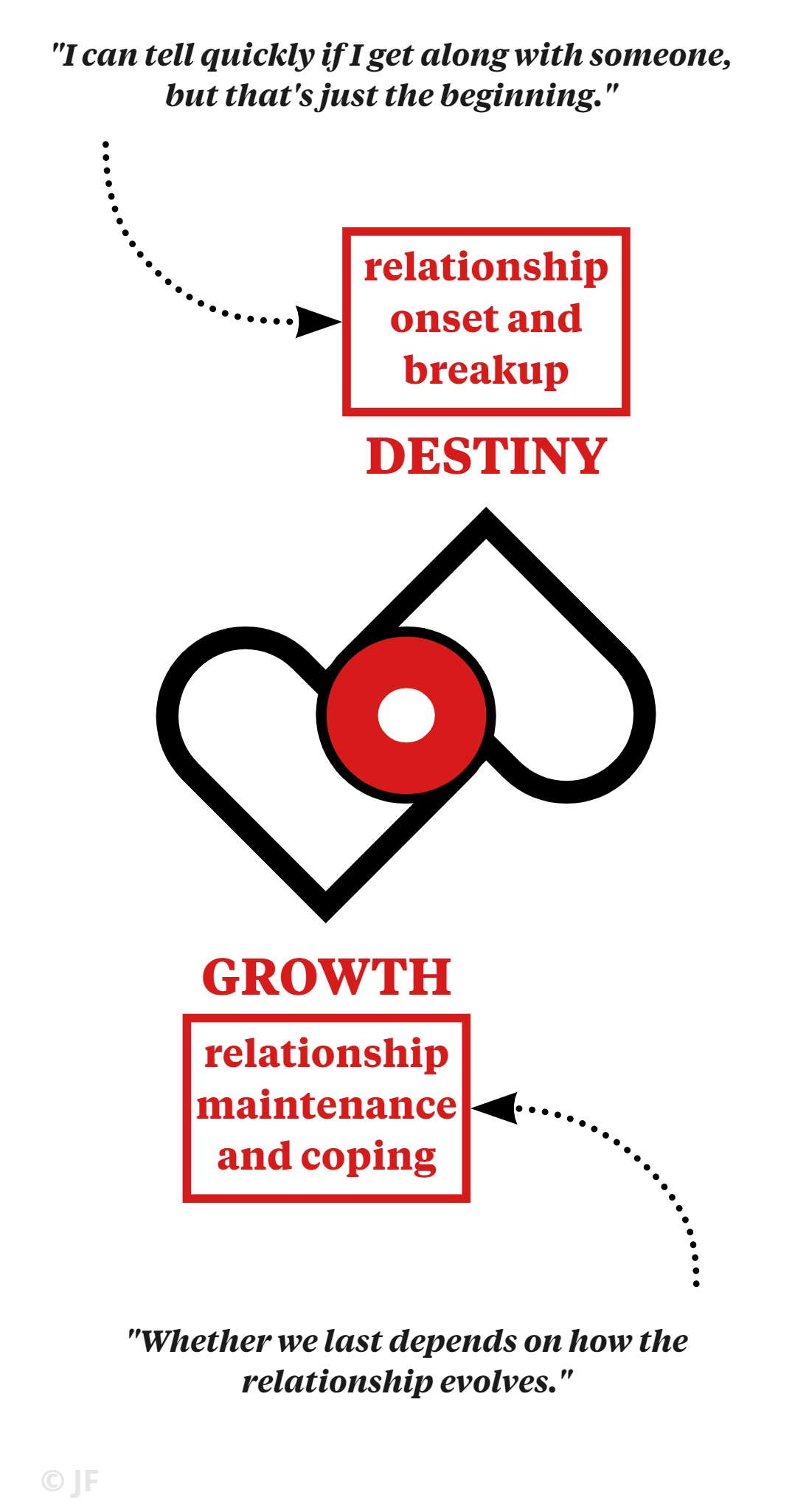
4 – Risk and Potential
Both destiny and growth beliefs bear potential risks.
A strong belief in romantic destiny may destroy the prospect of a future happy relationship with someone, if you rely too much on (disappointing) first impressions.
Plus: if you keep on chasing after an ideal partner and ‘love at first sight’, you may dismiss some very fine matches on the way.
A strong belief in growth can help partners survive negative relationship events and passion decay.
The willingness to work it out together can be an opportunity to reaffirm the relationship and revive romantic love.
However: CAUTION if love is unreciprocated and/or you find yourself trapped in a toxic relationship (characterised by emotional a/o physical abuse):
A growth theory may prevent you from terminating it sooner than later.
References
Carswell, K. L., & Finkel, E. J. (2018). Can you get the magic back? The moderating effect of passion decay beliefs on relationship commitment. Journal of personality and social psychology, 115(6), 1002.
Knee, C. R. (1998). Implicit theories of relationships: Assessment and prediction of romantic relationship initiation, coping, and longevity. Journal of Personality and Social Psychology, 74(2), 360.
Lüftenegger, M., & Chen, J. A. (2017). Conceptual issues and assessment of implicit theories. Zeitschrift für Psychologie.